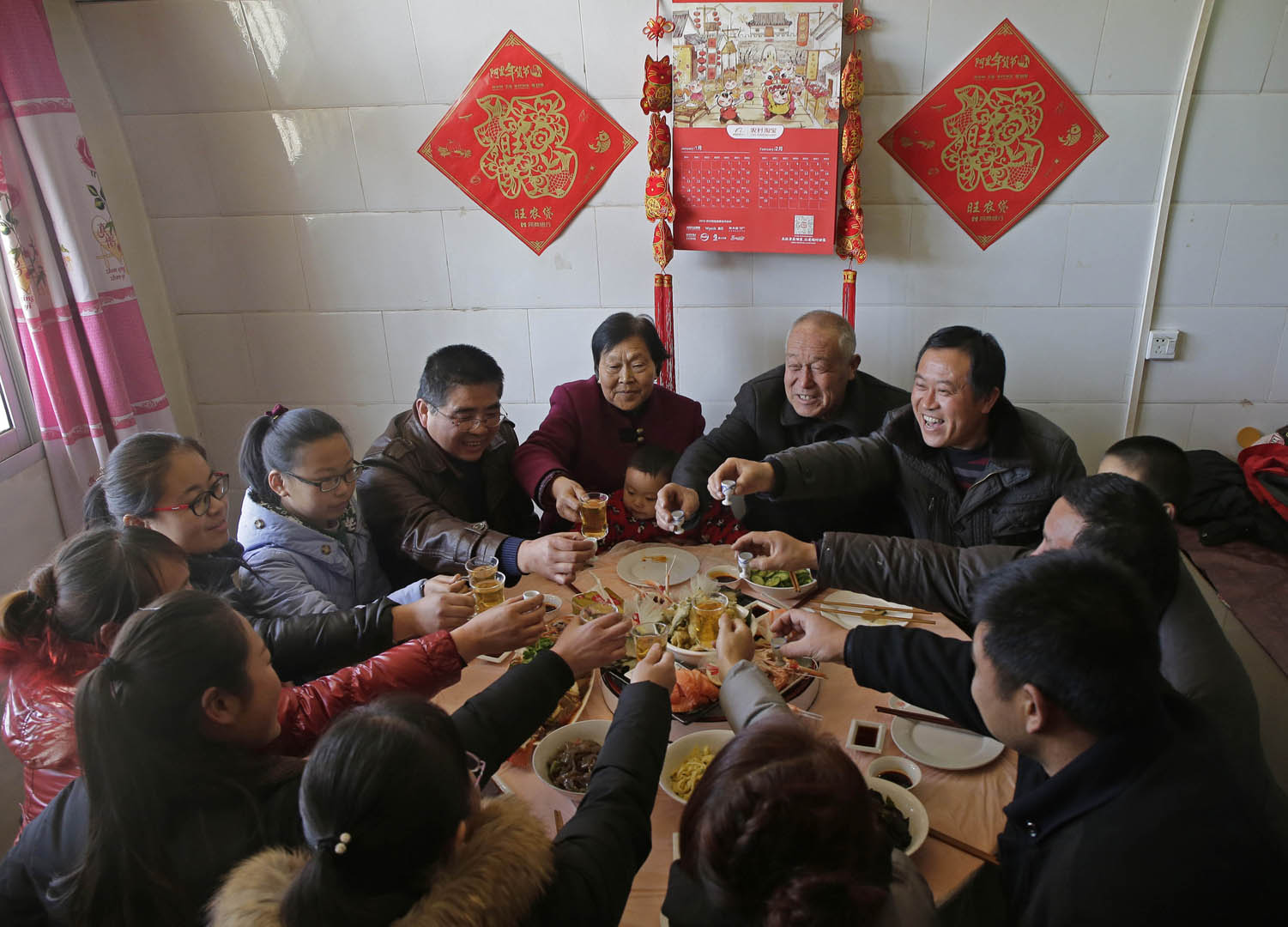According to the United Nations World Happiness Report in 2017, China is the 79th happiest country out of 155 nations. That ranking is an increase compared to last year, when China ranked 83rd.
CCTV conducted its annual Chinese economic life survey in March 2017 and asked 100,000 families what makes them happy. Here are the results.
Feeling healthy leads to greater happiness
The survey found that how people rated their health related to how they rated their happiness. Other factors that impacted happiness included family relationships, income, marriage, and hobbies.
The top five factors affecting people’s health were work stress (53.96 percent of respondents cited this), air quality (43.79 percent), their mental state (41.82 percent), food safety (37.26 percent), and their eating habits (35.54 percent). Respondents could cite more than one factor.
Money buys happiness — to a point, and then it brings unhappiness
The Chinese economic life survey found that when people earned more, they reported being happy and feeling less unhappy. But once annual incomes reached beyond 200,000 yuan ($29,071), a greater unhappiness began to grow.
In the chart below, the lowest and highest income group had the greatest percentage of people saying they were unhappy.
Thirty-one percent of people who made 10,000 yuan ($1,453) or less reported being unhappy, while 28 percent of people earning one million yuan or more ($145,353) reported being unhappy.
Small cities generally had happier people
The survey found that the happiest people lived in third-tier cities. First-tier cities such as Beijing, Shanghai and Guangzhou have the largest populations, commerce, and government structure, while second and third-tier cities are respectively smaller.
Nearly 49 percent of people in third-tier cities said they were happy compared to 42 percent of people in first-tier cities who said they were happy.
Love makes people happy
Marriage and romantic love saw the biggest jump in people cities it as their source of happiness.
The happiest Chinese cities in 2016
Lhasa, capital of southwest China’s Tibet Autonomous Region, led China’s 2016 Happiest cities list.
From report:
Big data analysis reveals that 76.12 percent of Lhasa residents felt ‘extremely happy’ in 2016. Their primary concerns were family (62.12 percent), marriage or relationship (52.31 percent), and health (46.92 percent). Only 36.15 percent of the participants selected income as their answers, while professional achievement is reportedly of having minor influence to their well-being.
 CGTN America
CGTN America


